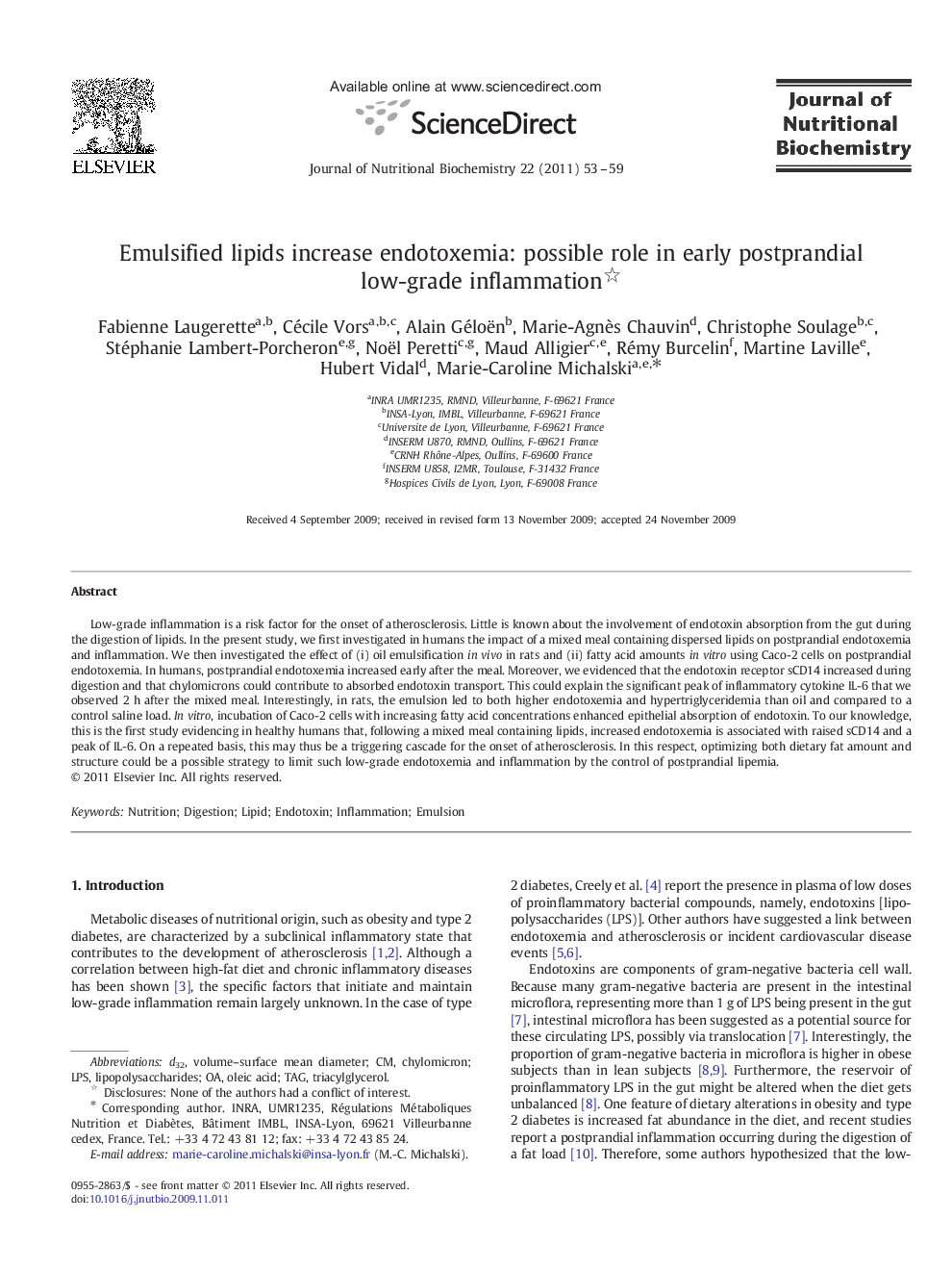| Article ID | Journal | Published Year | Pages | File Type |
|---|---|---|---|---|
| 1990787 | The Journal of Nutritional Biochemistry | 2011 | 7 Pages |
Low-grade inflammation is a risk factor for the onset of atherosclerosis. Little is known about the involvement of endotoxin absorption from the gut during the digestion of lipids. In the present study, we first investigated in humans the impact of a mixed meal containing dispersed lipids on postprandial endotoxemia and inflammation. We then investigated the effect of (i) oil emulsification in vivo in rats and (ii) fatty acid amounts in vitro using Caco-2 cells on postprandial endotoxemia. In humans, postprandial endotoxemia increased early after the meal. Moreover, we evidenced that the endotoxin receptor sCD14 increased during digestion and that chylomicrons could contribute to absorbed endotoxin transport. This could explain the significant peak of inflammatory cytokine IL-6 that we observed 2 h after the mixed meal. Interestingly, in rats, the emulsion led to both higher endotoxemia and hypertriglyceridemia than oil and compared to a control saline load. In vitro, incubation of Caco-2 cells with increasing fatty acid concentrations enhanced epithelial absorption of endotoxin. To our knowledge, this is the first study evidencing in healthy humans that, following a mixed meal containing lipids, increased endotoxemia is associated with raised sCD14 and a peak of IL-6. On a repeated basis, this may thus be a triggering cascade for the onset of atherosclerosis. In this respect, optimizing both dietary fat amount and structure could be a possible strategy to limit such low-grade endotoxemia and inflammation by the control of postprandial lipemia.
